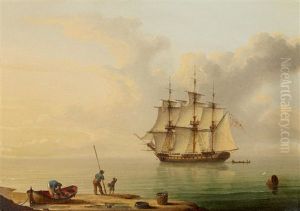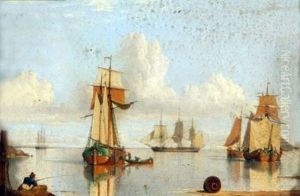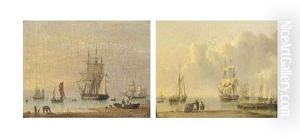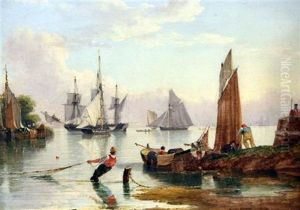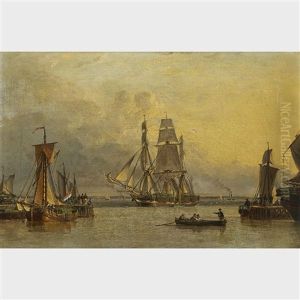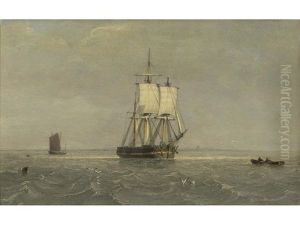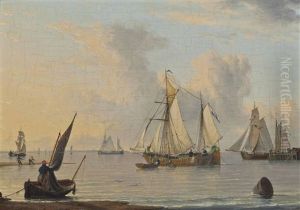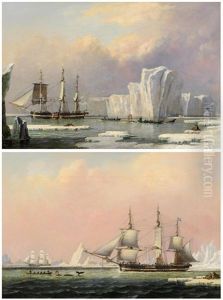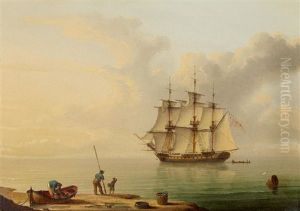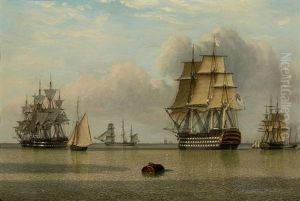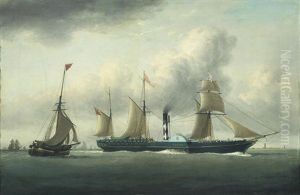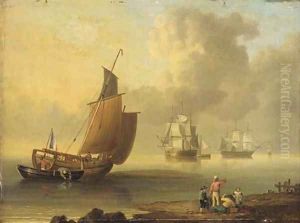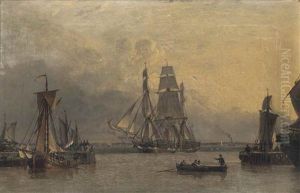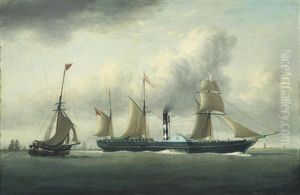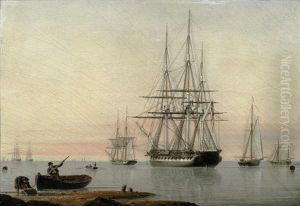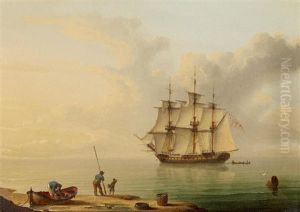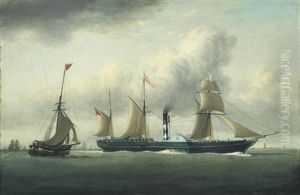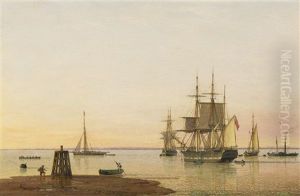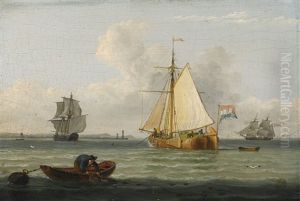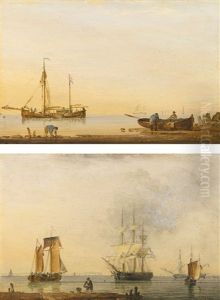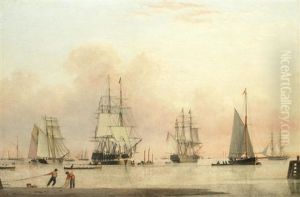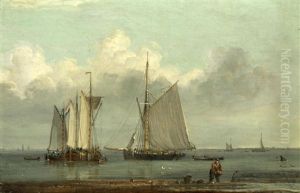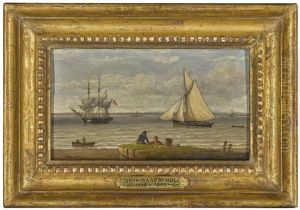John Ward Of Hull Paintings
John Ward of Hull, born in 1798, was an English marine and landscape painter whose work is associated with the port town of Kingston upon Hull, where he was based for much of his life. Ward's paintings often depict the bustling maritime activity of the docks and the vessels that frequented the Hull River during the early 19th century, showcasing his intimate knowledge of the shipping industry and the local landscape.
Not much is known about his early life and training, but he is believed to have been largely self-taught. Ward's skill in capturing the play of light on water and his attention to the intricate details of ships and their rigging quickly earned him recognition. His work, characterized by its realism and accuracy, became sought after by local shipowners and merchants who desired accurate representations of their vessels.
Throughout his career, Ward exhibited at prestigious institutions such as the Royal Academy in London and the North East Coast Exhibition of Industry, Science and Art in Newcastle. Despite his success, he remained in Hull, committed to painting the scenes of his hometown and the surrounding countryside. John Ward of Hull's paintings not only provide a valuable historical record of the maritime activities of the time but also exemplify the technical skill and dedication of an artist who was deeply connected to his subject matter.
Ward's legacy is preserved in the collections of various British institutions, including the Ferens Art Gallery in Hull and the National Maritime Museum in London. His works continue to be appreciated for their contribution to British marine art and for their portrayal of the industrial vigor of the period. John Ward of Hull passed away in 1849, but his work remains a testament to the rich maritime heritage of Hull and the talent of a local artist who captured it with such fidelity and beauty.
